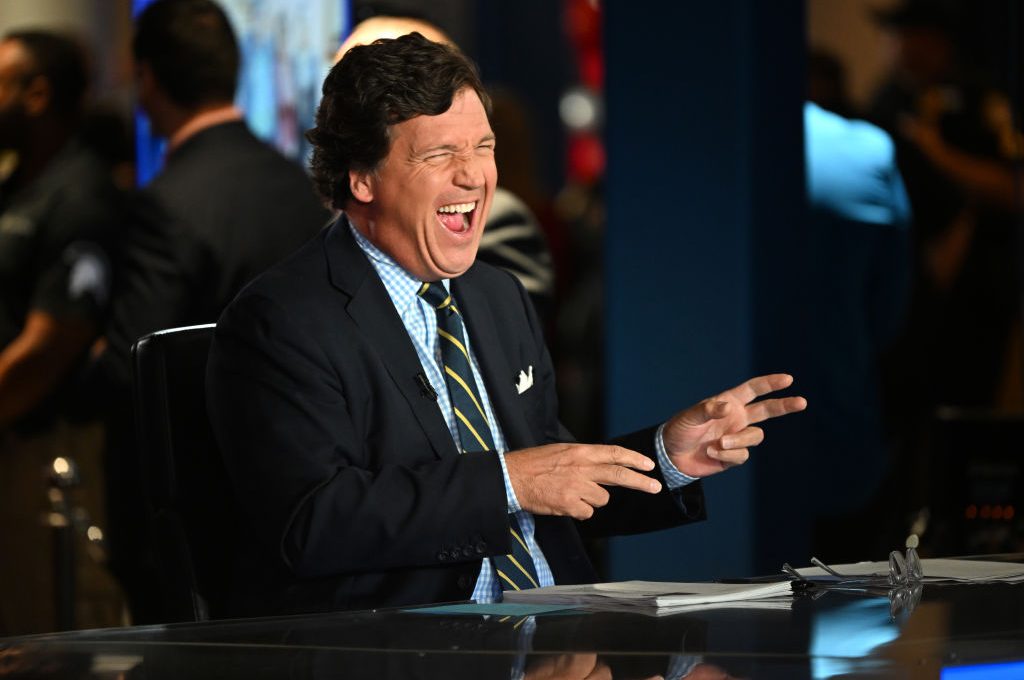Ever since it began in 2016, Tucker Carlson Tonight has been easily the most interesting news show on American television. It was never, as Carlson’s many detractors claim, Trumpist propaganda. On the contrary, Carlson was a rare bright spot of originality in a boringly partisan media landscape.
And now he’s gone: fired directly by Rupert Murdoch, I’m reliably told, with no reason given, just a few days after Fox News paid out $787 million to settle with Dominion Voting Systems.
“It was the older Aussie,” says my source: “the ninety-two-year old-who just called off his engagement and settled for 800 million so that he wouldn’t have to go to Wilmington.” (The Fox/Dominion trial was held in Wilmington, Delaware.)
The irony is that, unlike other voices on Fox, Carlson never actually went all in on the crazier conspiracy theories about election rigging in 2020. But media titans tend not to care too much about who was right and wrong when their empires are suffering.
Murdoch’s decision to fire his network’s most successful host is similar to his abrupt shuttering of the News of the World in the wake of the phone hacking scandal — a shocking move designed to draw a line under a painful episode.
In trying to do so, however, Murdoch has removed Fox News’s greatest asset. Over seven years, every week night, almost without fail, Carlson would introduce his 3.3 million viewers to an interesting thought or a different way of looking at the world. TV news is repetitive; that is its nature. But Carlson’s shows covered the talking points in a different key. He introduced new opinions and ideas into the media bloodstream.
That’s why Carlson is so popular: he is a radical who has a sense of humor. He would deliver powerful monologues against the vapidity of the news cycle and the failings of free-market capitalism, something no other Fox News head would dare do. He’s also a fierce anti-interventionist, who opposed America’s involvements in Iraq, Afghanistan, Libya, Syria and, most controversially, Ukraine. For this, other journalists often dubbed him a pro-Putin mouthpiece. That was a nasty slur.
But the reason so many media types despise Carlson is because he took seriously his catchphrase about being “the sworn enemy of lying, pomposity, smugness and groupthink.” The dishonest and conceited media hive mind hated him for that. Rich Americans tend to hate him, too, because they regard Carlson — himself a child of considerable privilege — as a class traitor. He took the side of struggling American workers against the phony progressivism of the corporate elite. That was unforgivable.
A lot of people will be cheering his departure today. Yet he remains very popular with a large section of the news-watching American public. Something tells me we haven’t heard the last of Tucker Swanson McNear Carlson.
This article was originally published on The Spectator’s UK website.

























